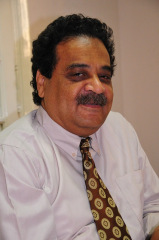In previous articles, I explored the different political parties and movements, along with the conflicts between them. The reason for the confusion among political parties and their inability to define their social standing is not only due to their members’ inexperience, but also due to the social variation of the Egyptian society. Often, one person entertains many social and cultural opinions, which leads to confusion and contradictory behaviour.
In other countries, things seem less complicated since people are often polarised to two main factions: the bourgeoisie and the proletariat. Therefore it is usually easy to determine a person’s political affiliation from their socioeconomic background. In addition, it becomes possible to detect their electoral tendencies. And just as the society is divided into two social factions, the political scene is divided into right wing and left wing.
In Egypt, things are a bit different. The social infrastructure of the Egyptian community is deformed and complicated because the formulation and evolution of capitalism did not happen naturally. Therefore, there wasn’t any balance in the evolution of society. The economic infrastructure was never completely capitalised, and the change never really reached the far corners of society. The result was a huge gap between the different socioeconomic levels, as well as the civil, cultural and rural communities. Additionally, Egyptian society remained prisoner to archaic concepts and traditions, which further increased the contradiction and conflict. This also extended to the economic sectors with problems arising between the almost feudalistic sectors and the globalised ones. Therefore, the different social levels seem unclear and intertwined. Hence, the social reality cannot be the main indicator of the political one.
In the recent decades, millions of Egyptians travelled to the Gulf to earn more money, which led to a huge change in the consumer behaviour and life paths of many Egyptians. This change could be detected not only among different social levels, but also between some people and their relatives with the same socioeconomic background and upbringing.
Some examples might make this concept easier to understand. For instance, with the workers in a steel factory in Helwan, some of them come from urban backgrounds while others come from rural and working class families, who are still living on small farms. Of course, the opinions of those who come from cities will not be the same as those who come from rural villages even though they work in the same place and sometimes even on the same production line.
Another example is the Muslim Brotherhood, which generally adopts a conservative, right-wing economic system. Yet, they push for founding an Islamic state, which does not match with the economic system they foster. A third example is that teachers with the same qualifications should adopt the same political opinions. However, there is a great difference between those who are working in rural societies and those working in Cairo’s posh neighbourhood or those working in the Gulf.
It becomes then easy to understand the inability of the different political parties to connect with people on the ground. Since the people themselves are dissipated and confused, it becomes hard for them to associate themselves with a certain political party. So, for instance, leftist parties will find it really hard to garner support from the working community due to their different social backgrounds and opinions. Therefore, the idea of consistent and hegemonic working class becomes unreal.
However, how did the Muslim Brotherhood succeed in rallying enough people and support? This will be the subject of the next article.



